MEP Weimers Calls For Creation Of Fund To Support Strikes In Iran
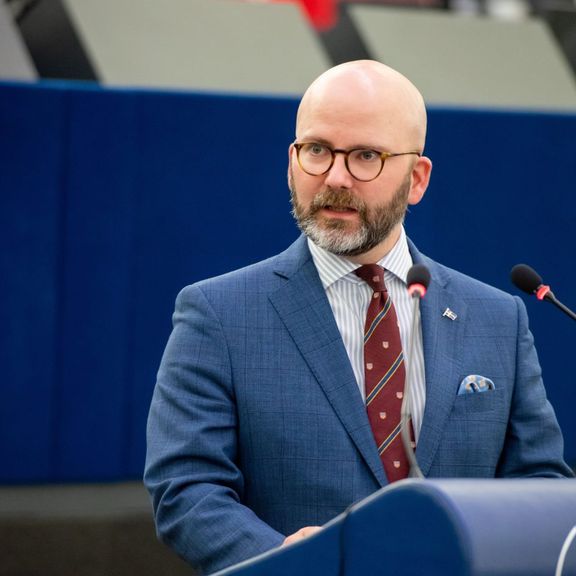
Charlie Weimers, a member of the European Parliament, has said that the EU should create a fund to support Iran's strikes by the blocked Iranian assets.

Charlie Weimers, a member of the European Parliament, has said that the EU should create a fund to support Iran's strikes by the blocked Iranian assets.
“One point that I will take to my fellow legislators is the need to support the Iranian labor movement. Many Iranian workers are struggling under almost slave-like situations in IRGC-owned entities… and we need to support them in some way by a strike fund,” stated Weimers.
He was speaking at a press conference with Iran’s exiled Prince Reza Pahlavi, who has been touring Europe to mobilize support for Iran protests.
He further noted that “we have an opportunity to seize the assets of the IRGC abroad…to create a strike fund for Iranian workers to enable the Iranian people to put an end to this regime.”
Weimers went on to say that European leaders should invite Iranian opposition to meet with them to recognize the Iranian opposition and to recognize that there are concrete plans for a transition to a democratic free Iran.
As the protests and calls for strikes continue in Iran, Prince Reza Pahlavi has repeatedly asked the US and the West to form a fund to support the families of the workers who are on strike.
Reza Pahlavi has repeatedly emphasized that the nationwide strikes along with protests will overthrow the Islamic Republic.

Exiled Prince Reza Pahlavi delivered a speech Wednesday and answered questions about post-Islamic Republic Iran at the European Parliament in Belgium.
Pahlavi, who has been very active in recent weeks advocating the “revolution in Iran,” was hosted by the Swedish Member of the European Parliament Charlie Weimers and Czech MEP Tomáš Zdechovský. His visit to Belgium is the latest leg of his European tour packed with meetings aimed at garnering support for the newly formed Iranian democratic opposition and pushing for sanctions against the Revolutionary Guards – the IRGC.
His speech was focused on how European countries will benefit from a regime change in Iran along with the Iranian people themselves. He elaborated on the economic benefits that a democratic Iran would herald for Europe in addition to security issues. Mentioning some terrorist activities in Europe by the Iranian regime he called on the MEPs to help further isolate “the regime that occupies” Iran, and expand their support for the Iranian people.
The United States and European countries have sharply criticized the Islamic Republic for its deadly crackdown on protests, but only the US has sanctioned the IRGC, while Europe still hesitates.
He highlighted that the Islamic Revolution of 1978 was never meant to be confined to Iran’s borders by its authors, adding that many leaders of the Islamic Republic, especially its founder Rouhollah Khomeini, do not see Iran as a nation but a vessel to export the Islamic Revolution.
He said now that different opposition voices have united in an unprecedented fashion to oust the regime, it is time for Western democracies to engage with and support the Iranian people.
Pahlavi said that support from European countries also benefits Europe and the wider Western world “because the movement for freedom and democracy in Iran carries the promise of a brighter, safer and more prosperous future for all democratic nations.”
Pahlavi went on to enumerate the threats posed against European countries by the Islamic Republic, describing its military support for the Russian invasion of Ukraine as the latest example. “The Islamic Republic is the only government outside Europe to be actively aiding and abetting Russia’s invasion through provision of military equipment,” he reminded the parliamentarians.
Emphasizing that he would never support a foreign war against Iran, Pahlavi said that “this regime is waging war against Europe, against its land, people and culture, just as it has waged war against my country since its inception. That is why it is of utmost importance that the European Union confronts this regime and holds it accountable for its criminal behavior.”
He said designating the IRGC as a terrorist organization by the European Union is the first step that “would limit meaningfully the regime’s ability to oppress Iranian people and terrorize yours.”
He said that Iran will become an ally of Europe and the Western world after the Islamic Republic, and assured Europe that a vacuum of power would not happen after the fall of the regime. “Iranian people have the talent and the will, the technical experts, the political forces and the national unity to manage a transition from this regime to a secular democracy,” he boasted.
He continued that the path towards establishing a secular democracy in Iran begins with acknowledging “two fundamental truths: that the Islamic Republic poses an existential threat to Iran and its people and that the Islamic Republic cannot be reformed.”
Stressing the necessity of overthrowing the regime in the shortest possible time, he underlined that Europe's support for the protesters in Iran “can significantly reduce the time and the cost of their brave struggle.” The people are the true sovereigns of Iran, not the Islamic Republic, he said, asking the European countries to recognize their struggle. “May light triumph over darkness,” he concluded and received a standing ovation from the MEPs.
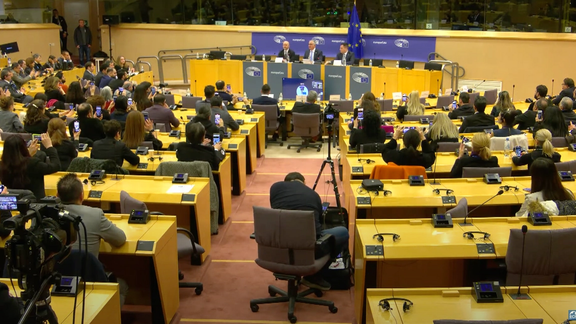
He also answered several questions by the representatives, some with Iranian heritage, about the future of Iran. “How could you possibly get an answer to a problem by talking to the people who are part of the problem?” he quipped in response to a question about the hesitation by those who opt to appease the regime in fear of the consequences.
Answering a question about the nuclear deal and the future of nuclear weapons, he pointed out that the problem is not the gun but the finger on the trigger. He said it is the nature of this regime that cannot be trusted regardless of what document they sign. He emphasized that decision about the country’s nuclear program would be taken by the future government of Iran.
In a historic joint event in Washington on February 10, eight prominent opposition figures held a forum, signaling the emergence of a leadership council in the diaspora to campaign for international support in favor of Iran’s protest movement. They also called for support from democratic countries to change the regime in Iran and establish democracy.
Earlier in the month, more than 20,000 Iranians held a protest rally outside the European Council in the Belgian capital, to call on the European Union countries to designate the IRGC as a terrorist organization. Thousands of Iranians from all over Europe held a massive rally in Strasbourg in January to pressure the European countries to list the IRGC.

Iran International has obtained information about the connection between the Islamic Republic’s internet and mobile monitoring companies and foreign firms helping them.
Companies from the UK, Canada and Russia are cooperating with an Iranian telecommunication company to track protesters and access the content of their calls or messages.
In October, American non-profit news organization The Intercept leaked a series of internal documents and communications, including emails sent by representatives of the Iranian and foreign companies, providing details on what appear to be plans to develop and launch an Iranian mobile network, including subscriber management operations and services, and integration with a legal intercept solution. The system, called Integrated system to query telecom customer Information – known by its Persian acronym SIAM – allows Iran’s Communication Regulation Authority (CRA) to enforce the Iranian government’s requirements to filter Internet content through a spyware and track the data of customers.
The CRA is tasked with executing governmental powers, supervision, and executive powers of Iran’s Ministry of Information and Communication Technology. The regime’s CRA regulations state that all telecom operators in Iran must provide the CRA with direct access to their system for retrieving user information. Justified under its own broadly defined “Legal Intercept” provisions, the CRA aims to use this sophisticated system to store user information, allow or deny a user’s access to mobile services, and view historical voice, SMS, and data usage.
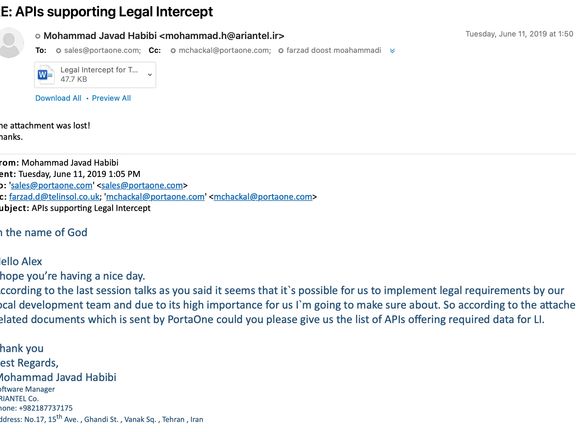
Ariantel is an Iran-based Mobile Virtual Network Operator (MVNO), the primary source of the emails. Telinsol is a UK-based satellite communications consultancy which appears to have conducted international business transactions with vendors on behalf of Ariantel. PROTEI is an international telecommunications systems vendor founded in Russia which was selected by Ariantel to provide core network components to the company in support of user authentication, data management and Deep Packet Inspection (DPI), SMS delivery, and mobile network signaling. And PortaOne is a Canada-based mobile business and support system vendor, which was selected to provide mobile account creation, service provisioning, billing, and customized integration with Iran’s Legal Intercept system.
Iran International’s Mojtaba Pourmohsen has contacted all the foreign-based companies but none of them provided any comments about their cooperation with Iranian firms. He went to the addresses registered for the London-based company, but they turned out to be fake or old, strengthening the speculations that these firms can be cover companies belonging to people close to Iranian authorities. The manager of the company is identified as Iranian national Nima Eskandari, who, according to the leaked emails, was in correspondence with Ariantel and the Russia-based company about their services.

The emails and other documents revealed the level of sophistication Iranian authorities sought to conduct surveillance operations and control access to mobile information and communications. The software and services offered by the foreign-based vendors allow the CRA to integrate with mobile service provider systems inside the country, including the web service API that is called SIAM. It seems that Ariantel has deployed a fully operational mobile network in Iran, integrating with the CRA’s Legal Intercept system.
According to our sources, representatives from Iran’s main mobile service providers are likely attending the Mobile World Conference in Barcelona, the largest and most influential event for the connectivity ecosystem. While the organizing body of the MWC Barcelona confirmed in response to Iran International's email that no delegation from Iran has been invited to this conference, exclusive information shows that four high-ranking managers of Iran's biggest service provider are participating in the event, being held from late February until March 2.
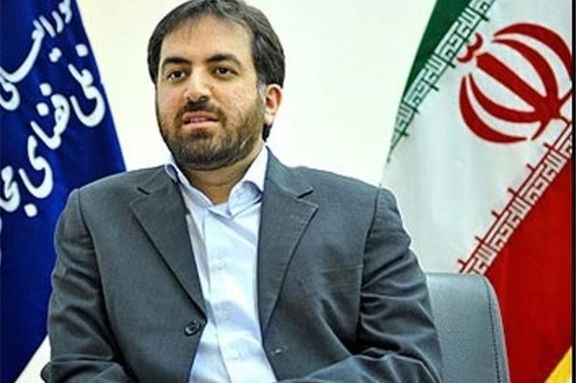
An informed source told Iran International that they applied for a visa through France to attend the Barcelona conference as independent individuals. The four Iranians are close to the company’s CEO Mehdi Akhavan Bahabadi, who is himself among the close circle of one of Supreme Leader Ali Khamenei’s sons.
Iran’s biggest mobile companies, namely Mobile Telecommunication Company of Iran (Hamrah Avval) and MTN Irancell, are mainly owned directly or through intermediaries by Revolutionary Guards – or the IRGC – that is the Islamic Republic’s main force in quashing the ongoing protests across the country.
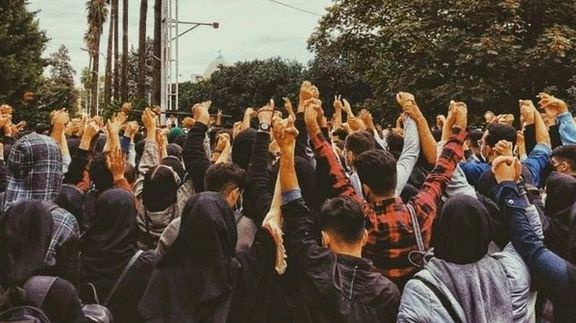
Students at Tehran University have held a rally against closures of dorms and classes which will now be held online until April.
Protests on Monday afternoon saw male and female students across the campus chanting “in-person education is our absolute right”, in addition to calling on Mohammad Moghimi, the Dean of the university to resign.
The news was announced by Mahmoud Kamarei, the university’s vice President was said that the student accommodation will not be available from March 16 to April 7, with the closures of facilities such as canteens during the same period.
The country’s Student Union Council claims "the authorities are afraid of the presence of students in the university and that the lack of budget is a false excuse for closing the universities in the second semester”.
Iran's universities were one of the main centers of protests during the nationwide uprising against the regime following the death of Mahsa Amini in police custody. In order to suppress the protests, the security force of the Islamic Republic repeatedly attacked the universities and arrested over 700 students.
A large number of students have also been banned, expelled and suspended by university administrators.
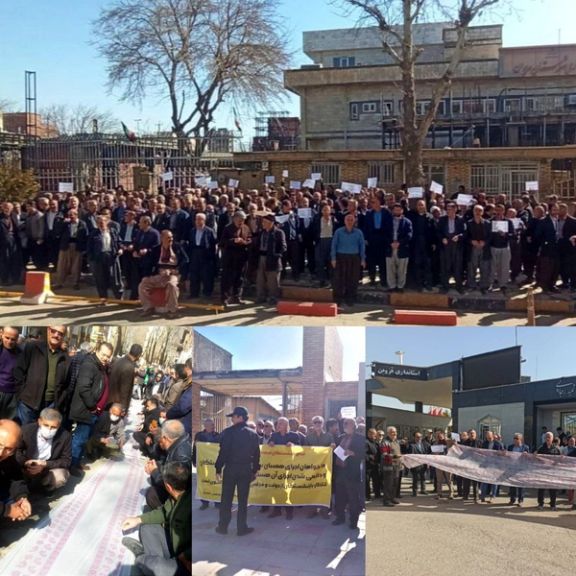
A group of Iranian retirees have held gatherings in front of the governorate buildings in several cities across the country calling on the government to resolve their problems.
In the capital Tehran, regime forces attacked the gathering of retirees. In the cities of Yazd, Sanandaj, Shahrekord, Kermanshah, Marivan, Ardebil, Ilam, Arak, Qazvin, Rasht, Esfahan, Tabriz, Kerman and Sari the retirees chanted slogans like "Costs are in dollars, pensions are in rials", "Expenses, inflation are taking people's lives", and "Incompetent government, resign, resign".
The nationwide gatherings were held to protest the poor living conditions and regime’s failure to increase payments for the retirees.
According to trade union organizations, in Tehran, pensioners gathered in front of the parliament, but the security forces dispersed them.
Eyewitnesses say, “the situation was very tense, and the forces physically assaulted the protesters.”
According to the Coordination Council of Iranian Teachers' Trade Associations, the security forces violently arrested several people in front of the parliament.
On Monday, Telecommunications retirees also gathered in Esfahan, Sanandaj, Arak, Bandar Abbas, Kermanshah, and Khorramabad to protest the government’s inattention to their demands as inflation soars and their pensions remain unchanged.
Iran witnessed another wave of daily protests and strikes since Saturday, as its currency sank leaving ordinary people to wonder how they can afford minimum necessities.
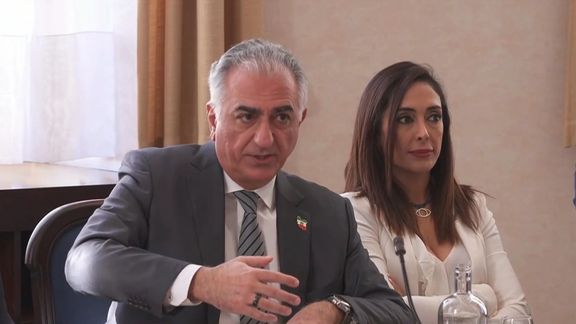
Exiled Prince Reza Pahlavi, who has been very active in recent days touring Europe and advocating the “revolution in Iran,” is in Belgium for a European parliament event.
He arrived in the Belgian capital Brussels on Tuesday and was welcomed by the Swedish Member of the European Parliament Charlie Weimers, one of his hosts in a Wednesday event, titled “A secular, democratic Iran: implications for Europe's economy and security.”
The former Crown Prince held meetings with Belgian lawmakers from different parties at the country’s parliament later in the day.
According to Iran International’s correspondent in Brussels, Bardia Afshin, Pahlavi was asked to talk about his cooperation with other prominent dissident figures and his negotiations with diplomats and officials of other countries meant to garner support for the current protests in Iran, which have been going on for over six months and have been described as the boldest challenge the Islamic regime has faced so far.
During the event at the Belgian parliament, Pahlavi said that the global society should feel comfortable with the alternative to the Islamic Republic, noting that the sooner the transition happens, the sooner the sanctions can be removed and Iran can have foreign investment. He also briefed the lawmakers of the opposition’s ideas for the interim government, which will have specialized committees for different tasks that should be performed during the transition period until a referendum is held in the country.
Pahlavi spoke about the charter of solidarity and freedom of Iran, reiterating that it creates the basis of cooperation among opposition forces to oust the Islamic Republic. "Iran's Charter of Solidarity and Freedom", which is being finalized, includes the minimum principles of agreement for the majority of secular democratic forces. The exiled prince also said that the content of the charter is coordinated with the activists and protesters inside the country to reflect their views and visions for the future of Iran. He said the charter is composed of voices coming from inside the country.
Pahlavi also mentioned jailed lawyer and activist Nasrin Sotoudeh and civil and human rights activist Narges Mohammadi, as well as Fatemeh Sepehri, another activist opposed to the Islamic Republic, as being among the people whose ideas were considered in the charter.
In their historic joint event in Washington on February 10, eight prominent opposition figures held a joint forum, signaling the emergence of a leadership council in the diaspora to campaign for international support in favor of Iran’s protest movement. They also called for support from democratic countries to change the regime in Iran and establish democracy.
On Wednesday, Weimers and Czech MEP Tomáš Zdechovský will host Pahlavi at the European Parliament for the first time where he is scheduled to deliver a keynote speech. His visit to Belgium is the latest leg of his European tour packed with meetings aimed at strengthening support for the newly formed Iranian democratic opposition in EU institutions and pushing for sanctions against the Revolutionary Guards – the IRGC.
Earlier in the month, more than 20,000 Iranians held a protest rally outside the European Council in the Belgian capital, to call on the European Union countries to designate the IRGC as a terrorist organization. Thousands of Iranians from all over Europe held a massive rally in Strasbourg in January to pressure the European countries to list the IRGC.
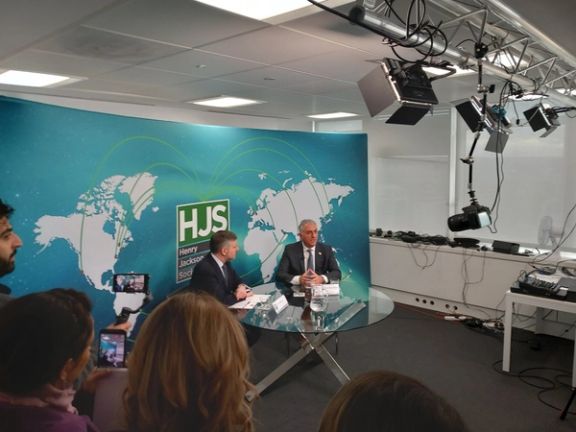
Before Brussels, he was in London, where he attended events at the Oxford Union and the Henry Jackson Society as well as the House of Commons. Hundreds of Iranians had come from across the UK packing the streets of Oxford on Monday, February 27, to catch a glimpse of the son of Mohammed Reza Pahlavi, the last Shah of Iran. Amid a low police presence, there was a carnival-like atmosphere, with people holding red roses as a sign of respect for the prince. His supporters hope one day he will be the King in a constitutional monarchy.
Before the Iranian Revolution in 1979, he was the heir apparent to Iran’s 2,500-year-old throne, but he has repeatedly announced that he is not seeking the throne and people should vote if they want a Republic or a monarchy.